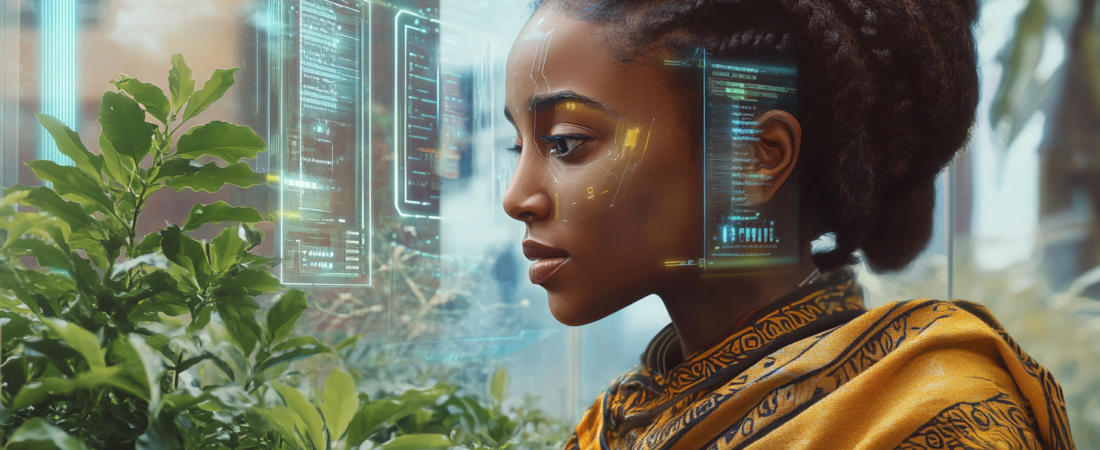In the middle of Addis Ababa’s tech boom and coffee-fueled innovation, one topic is stirring up excitement, confusion—and sometimes downright fear: Artificial Intelligence, or AI.
From Telegram groups to taxi rides, from university hallways to casual banter at the barbershop, AI is making its way into Ethiopian conversations. But like every major technological shift in history, it’s bringing with it promise, peril, and plenty of paranoia.
Let’s take a breath and look at AI with both eyes open—no hype, no horror stories. Just facts, context, and real talk for Ethiopia’s rapidly evolving tech landscape.
🌟 The Promise: Ethiopia’s Tool to Leap Forward
AI isn’t just about robots or Hollywood sci-fi. At its core, AI means creating systems that can learn from data and make decisions—or at least, predictions—based on that learning.
This might sound abstract, but you’re probably already using AI without realizing it:
- That voice typing feature that understands your Amharic? AI.
- Facebook’s ability to recognize faces in your photos? AI.
- Translation tools that let you switch between Afaan Oromo and English? Also AI.
For Ethiopia, where access to experts, infrastructure, and services varies dramatically across regions, AI offers unique opportunities to leapfrog traditional development challenges:
- In agriculture: AI-powered tools helping farmers detect plant diseases early, even in remote areas
- In healthcare: Chatbots offering basic health advice in local languages, extending care where doctors are scarce
- In logistics: Smart systems improving transport across our challenging terrain, bringing goods to previously underserved areas
- In education: Tools that bring quality learning experiences to students everywhere, from Addis to Afar
Used wisely, AI could be the great equalizer—making services faster, smarter, and more accessible to every Ethiopian, regardless of location or background.
⚠️ The Perils: Challenges We Must Address
But let’s be honest—AI is not a magic solution to all of Ethiopia’s challenges.
First, it will disrupt jobs. Not all work will disappear, but roles will shift. If your job involves highly repetitive tasks (like data entry or basic customer service), parts of your work might soon be handled by an AI system. This means we need to think about how we prepare our workforce for tomorrow, not just today.
Second, there’s the issue of bias. Most AI systems are trained on data from Western contexts—with little input from African perspectives, let alone Ethiopian ones. An AI trained without our voices might make mistakes, or worse, reinforce harmful stereotypes. Imagine a health diagnostic tool that doesn’t understand Ethiopian skin tones, dietary habits, or cultural contexts. That’s not just unhelpful—it’s potentially dangerous.
Finally, there’s the power gap. Those who understand and control AI will benefit more, while others risk being left behind. Without strong digital literacy programs, fair policy frameworks, and local innovation, we could find ourselves using tools we don’t understand, controlled by people we don’t know, serving interests that aren’t ours.
😨 The Paranoia: Myths That Hold Ethiopians Back
Then there’s the paranoia—those whispered fears that AI will become “smarter than humans,” that it’s constantly spying on us, or that it will make Ethiopian workers obsolete.
These fears, while emotionally understandable, are often based on misinformation or science fiction. AI doesn’t “think” or “feel” as we do. It doesn’t have ambition or consciousness. It can’t decide to take over Ethiopia or the world. What it does have is the ability to process huge amounts of data quickly—but only within the parameters we set.
And yes, AI can be misused, like any powerful tool. But that’s a human problem, not a machine one.
The real danger isn’t AI turning into some digital supervillain. It’s Ethiopians being too afraid to learn about, explore, and shape the future of AI ourselves. Every moment we spend in fear is a moment we’re not innovating.
🇪🇹 What Ethiopia Needs to Do Now
We don’t need to wait for Silicon Valley or Beijing to tell us how AI should work in our context. Ethiopia has the talent, the creativity, and the essential local knowledge to build our own solutions—if we act now.
Here’s where we can start:
- Develop AI literacy programs for all Ethiopians, not just tech experts
- Create and support Ethiopian AI initiatives that address our unique challenges
- Build translation tools and apps that truly understand our languages and cultural realities
- Establish clear policy frameworks that protect Ethiopian users without stifling local innovation
- Foster a culture of critical thinking so we question, learn, and don’t fall for either hype or fear-mongering
💬 The AfroCore AI Perspective
At AfroCore AI, we believe that AI isn’t just coming to Ethiopia—it’s already here. But its ultimate impact depends on choices we make today.
We can buy into the paranoia, or we can prepare with purpose. We can focus only on the perils, or we can unlock the promise. We can wait for others to define AI’s role in Africa, or we can build solutions by Ethiopians, for Ethiopians.
Because the future of technology in Ethiopia isn’t something we passively await—it’s something we actively shape. And we invite you to shape it with us.
How is AI already affecting your life in Ethiopia? Share your experiences in the comments below or connect with us to learn more about Ethiopian-centered AI solutions.
